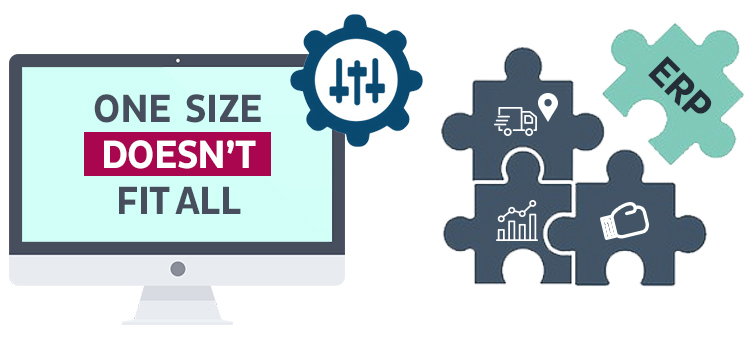Freefall: Why Free and Open Source eCommerce Platforms Are Strangleholding Your Profits

March 4, 2019
Free ecommerce platforms don’t do what they say on the tin. In actuality, many “free” ecommerce platforms aren’t free at all, often coming bundled in with hidden costs, having a reliance on third-party software and developers, as well as providing limitations for your business. Integrating an ecommerce platform with internal systems is never an easy task. Even a bespoke, rigorously designed system can have quite a few teething issues, but these teething problems can quickly become the ecommerce equivalent of a double root-canal with free platforms.
In TrueCommerce’s experience, companies don’t do their research and end up spending roughly two years and triple their original budget attempting to patch together a “free” platform riddled with different plug-ins, waiting on developers to make changes, thinking about work arounds for missing b2b functionality and then finally getting frustrated trying to fix the many bugs before throwing in the towel and opting for our purpose built b2b ecommerce solution. Why, then, are free ecommerce platforms simply too good to be true?
”One Size Fits All” is a Disadvantage
Long story short, open source, free ecommerce platforms like Magento come with lots of additional costs when it comes to b2b ecommerce, especially if you don’t factor in the additional technical resource you will need to go live with a functioning and integrated solution.
Many businesses run off ERP systems, ERP systems by design are heavily customisable so that they can meet the bespoke needs and internal processes of any business therefore expecting to marry this with a free ecommerce platform by purchasing a standard plug in from the development community falls into hypocrisy.

In the world of b2b, clients are less forgiving and it is not as cut and dry as with simple b2c consumers where open source solutions may be a good out of the box fit and be all that is required; in b2b, you need to personalise not just the content but also the functionality to provide different ordering tools to ensure each customer gets the fastest possible transaction speed – this is a key success metric. Coupled with giving your customer access to real time data held in your internal systems there are clear reasons why customers choose TrueCommerce to address their b2b requirements. We wrote about the hypocrisy and disadvantages of “one size fits all” policies back in 2016, well ahead of the free ecommerce explosion.
Hidden Developer Costs
Returning to Magento, it is often lauded for the volume of customisation options on offer, but this makes the presence of an experienced developer necessary. A quality free-lance developer is likely to cost you £400 a day, bearing in mind you will need a lot of development to meet your b2b requirements having one developer is going to be prohibitive in terms of going live in a reasonable time period so you are more likely to go to a development company with a team of developers and this is going to be more in the region of £1000 a day.

This won’t just be short term, either. When offloading so much work and money to a developer, the point of a free platform soon evaporates especially if you factor in the cost of your company’s time in liaising with the developers and testing their work – by the end of it you may be so immersed in it you may feel like you have diversified into software development and lost track of your day to day responsibilities. By virtue, the outsourcing of development work soon overrides the platform’s origins as free software. There is little to no point in building your platform around a free foundation if your goal was to save money on delivering your b2b strategy, your solution will be bespoke and it will become your responsibility to keep updating it and to keep investing in development.
As your business grows, so will your reliance on developers to amend and expand your platform, increasing the risk of errors, misunderstanding of briefs and potential security issues cropping up. If you went down the free-lance route you may find you have to go to a new developer and your risks will increase as they try to understand the bespoke work you previously commissioned.
Security Leaks
The risk of security weaknesses when it comes to some open source ecommerce solutions is perhaps its most egregious quality. For some major open source platforms, security gaps get routinely published as a result of the code being readily available to hackers to analyse and look for exploits, putting thousands of people – namely your customers and network – at risk. When this happens, it is your responsibility to plug the gaps and this generally means more fees to developers.

When opting for paid-for ecommerce platforms like TrueCommerce, you ensure that after the point of purchase you have a single trusted partner that takes care of all ongoing developments, security enhancements and provides all ongoing support removing the risk and responsibility from you.
Lack of Exclusive, Free Feature
Creating a storefront full of unique, exclusive features is difficult and costly on a free platform. With TrueCommerce, we have exclusive b2b features that would cost significantly more money to develop on an open source platform.

Not only are these features useful for the customer journey, they guarantee you a return on investment. Qualities such as customer specific catalogue views, powerful promotions engine, punchout, multi-lingual, customer approval work flows, invoice payment and full GDPR compliance are integral to TrueCommerce’s platform but would require an extensive commitment of time and money to develop into a free platform.
Free ecommerce platforms run off of promises and what-ifs, sacrificing your profits in the process. You can achieve more and sooner with TrueCommerce’s trusted, safe and transparent ecommerce platform.
Share this post:
Stay ahead of the competition
Get expert supply chain insights delivered directly to your inbox weekly.